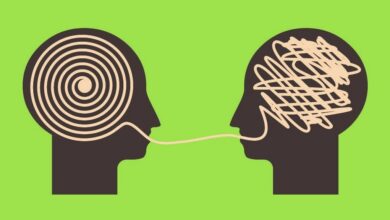Understanding Different Types of Mental Health Problems
Mental health has become an essential topic of discussion. At our organization, we believe in spreading awareness and providing comprehensive information about various types of mental health problems. Our goal is to offer insights that not only help individuals recognize these issues but also enable them to seek appropriate support and treatment. In this article, we’ll delve into different types of mental health problems, shedding light on their symptoms, causes, and potential treatments.
1. Anxiety Disorders
Anxiety disorders are characterized by excessive worry, fear, or apprehension. Conditions like generalized anxiety disorder (GAD), panic disorder, and social anxiety disorder fall under this category. Symptoms of anxiety disorders may include restlessness, racing thoughts, muscle tension, and sleep disturbances. These conditions often arise from a combination of genetic, environmental, and psychological factors.
Recognizing Anxiety Disorders
It’s crucial to recognize the signs of anxiety disorders to ensure timely intervention. Common symptoms include:
-
-
-
-
-
- Persistent feelings of unease
- Excessive worrying
- Avoidance of certain situations
- Sudden panic attacks
-
-
-
-
2. Mood Disorders
Mood disorders encompass a range of conditions that affect a person’s emotional state. Depression and bipolar disorder are prominent examples. Those with depression may experience persistent sadness, lack of interest, and changes in appetite or sleep patterns. Bipolar disorder involves extreme mood swings between depression and mania.
Identifying Mood Disorders
Identifying mood disorders can be challenging, as symptoms vary. Look out for:
-
-
-
-
- Prolonged periods of sadness or irritability
- Loss of interest in activities
- Increased energy and impulsive behavior (in bipolar disorder)
-
-
-
3. Psychotic Disorders

Psychotic disorders involve disruptions in thinking, perception, and reality. Schizophrenia is a well-known psychotic disorder. Individuals with schizophrenia may experience hallucinations, delusions, and disorganized thinking. Onset usually occurs in late adolescence or early adulthood.
Understanding Psychotic Disorders
Psychotic disorders can be bewildering, both for the individual experiencing them and those around them. Watch for signs like:
-
-
-
-
- Hearing voices or seeing things that aren’t there
- Strong, unfounded beliefs
- Difficulty concentrating or organizing thoughts
-
-
-




